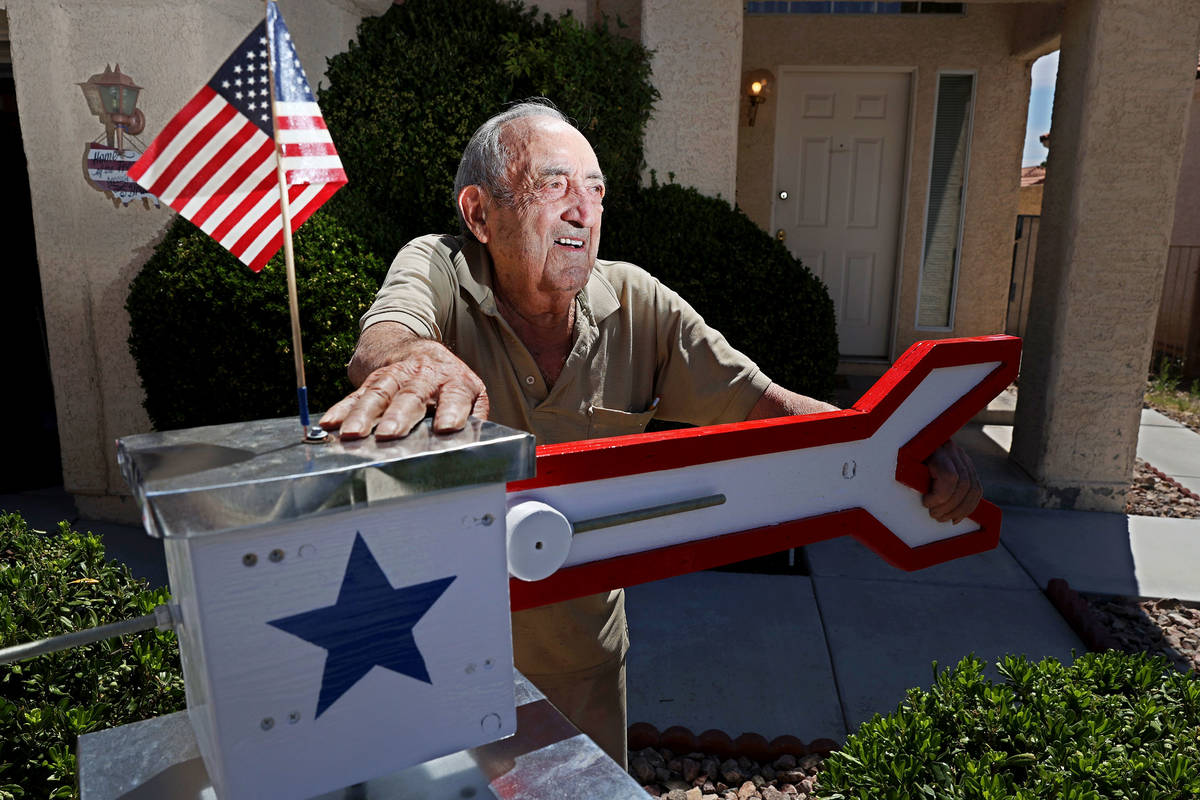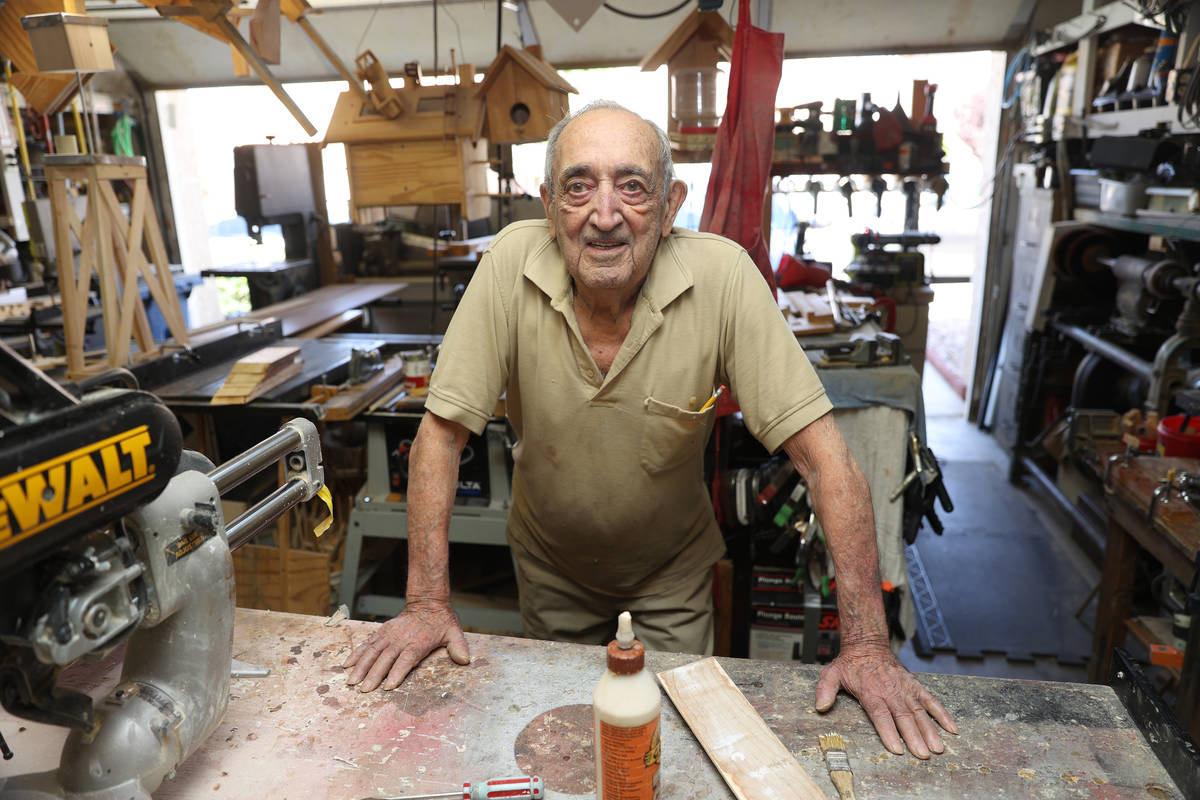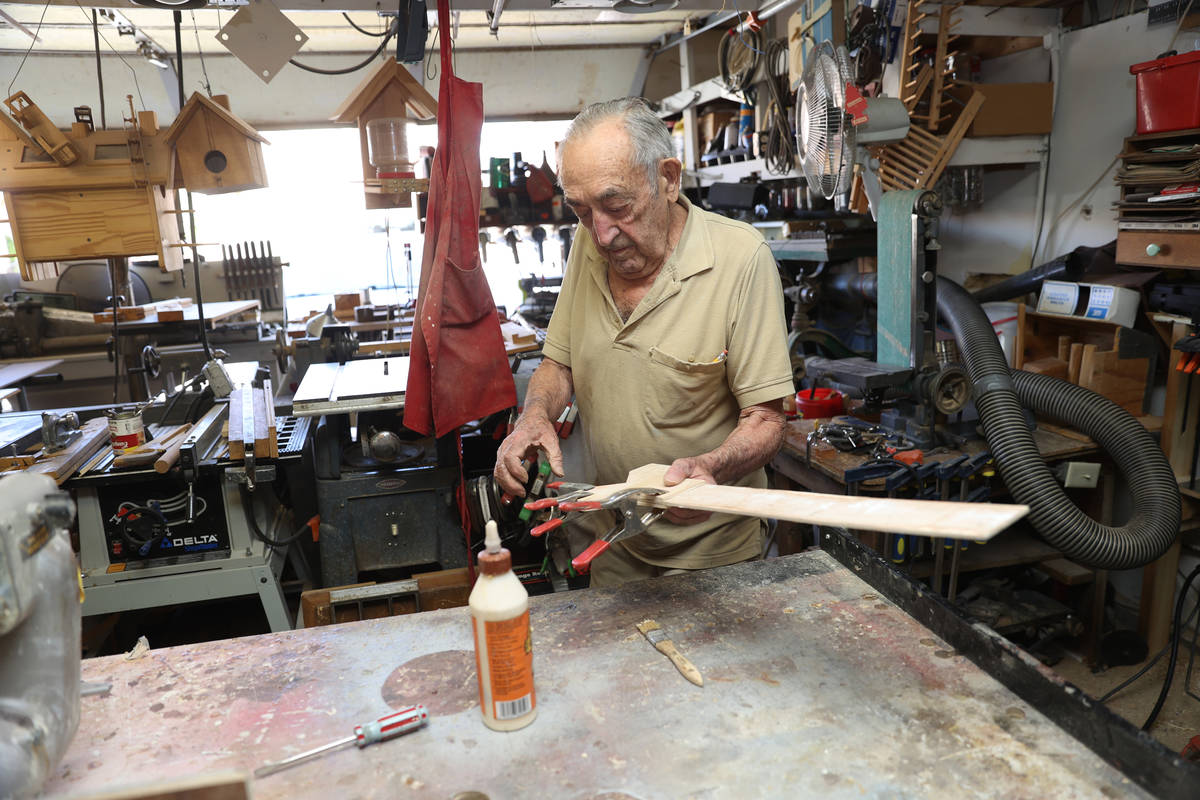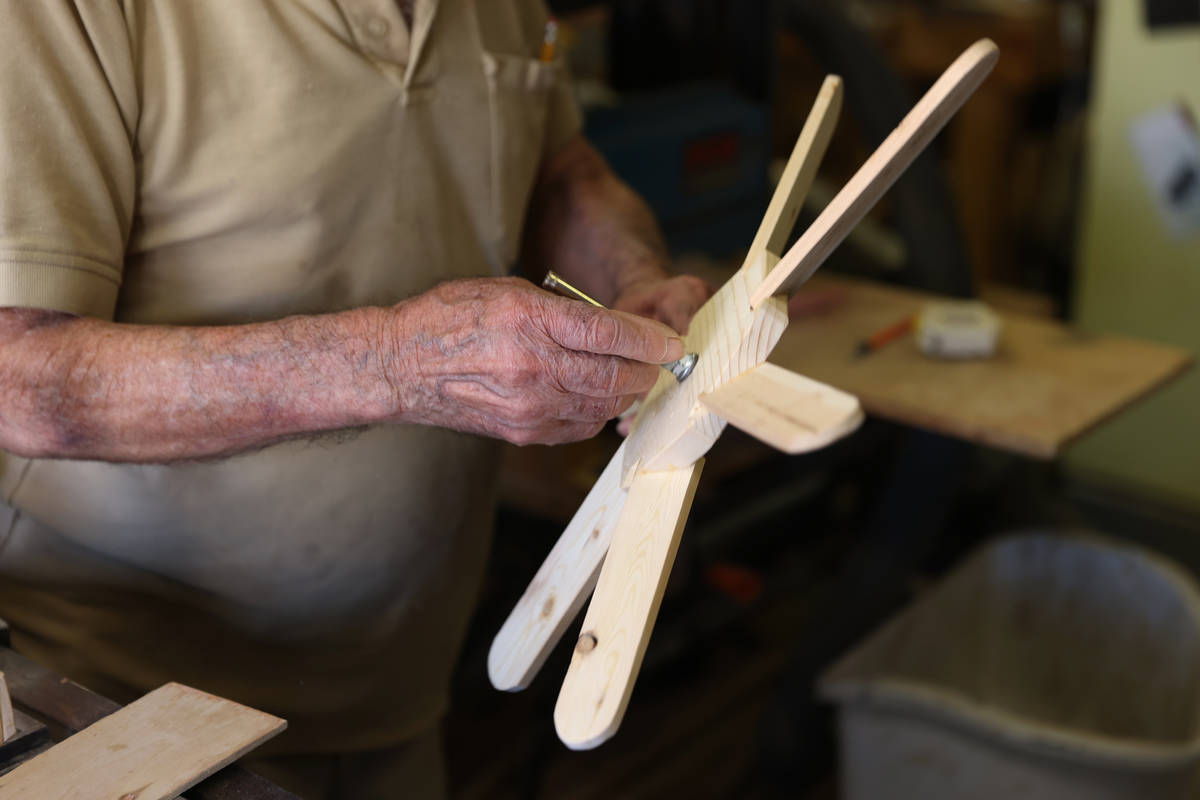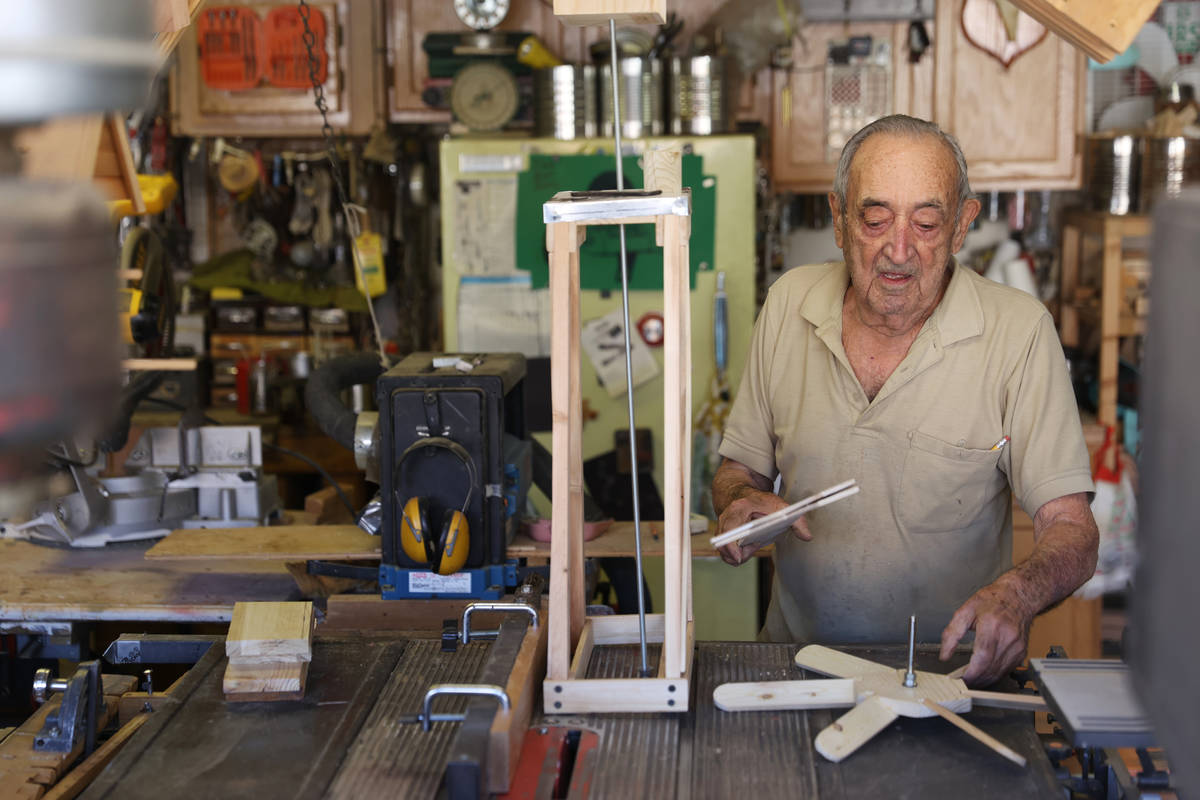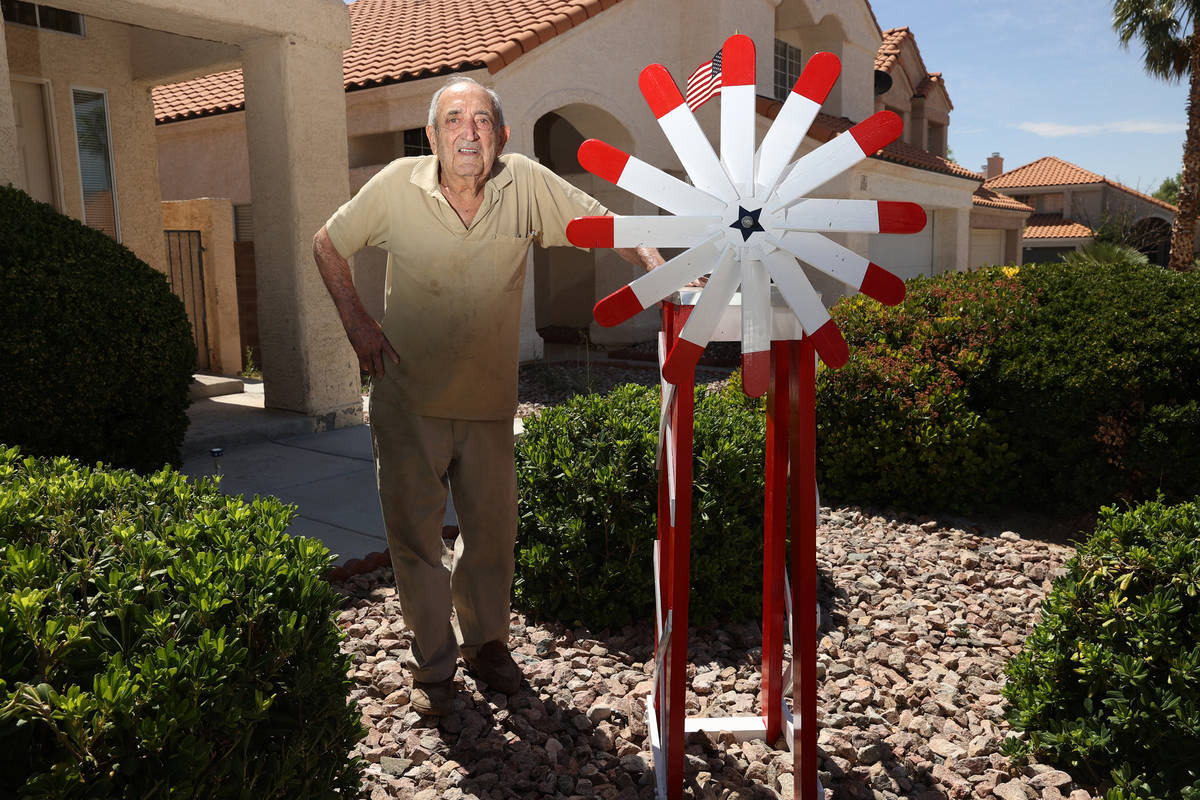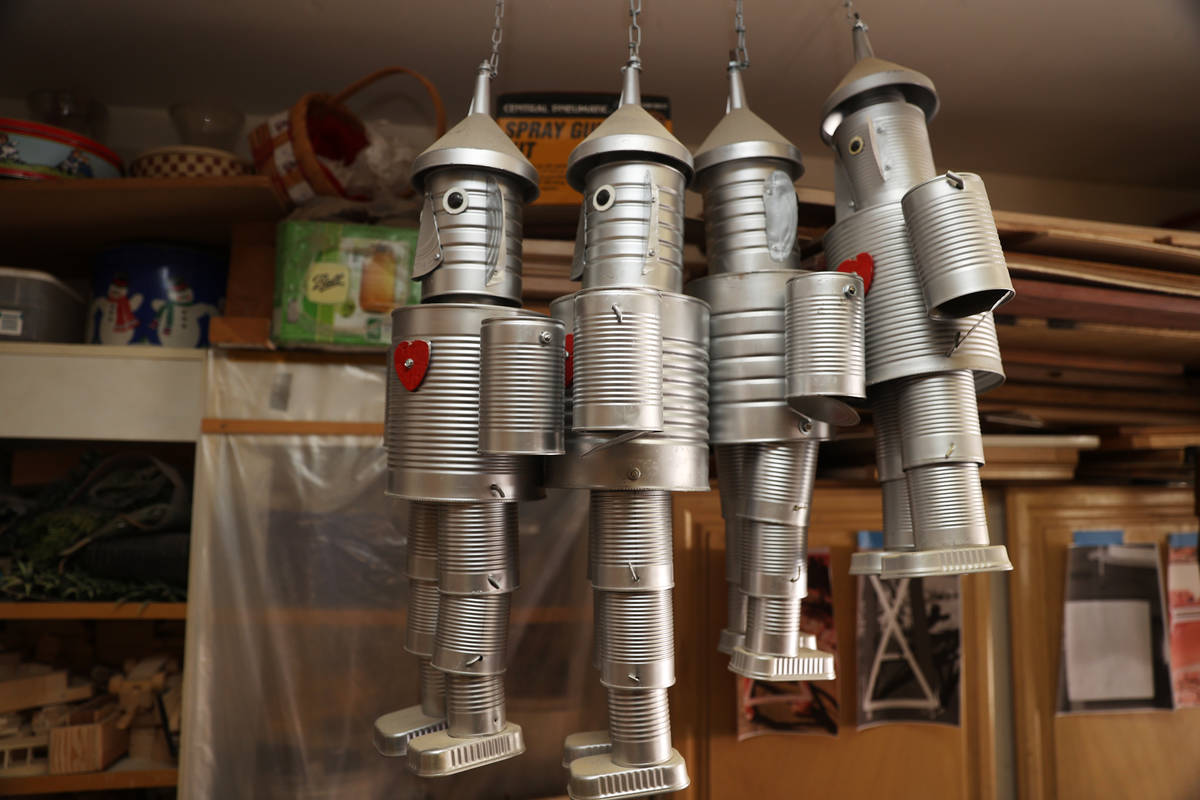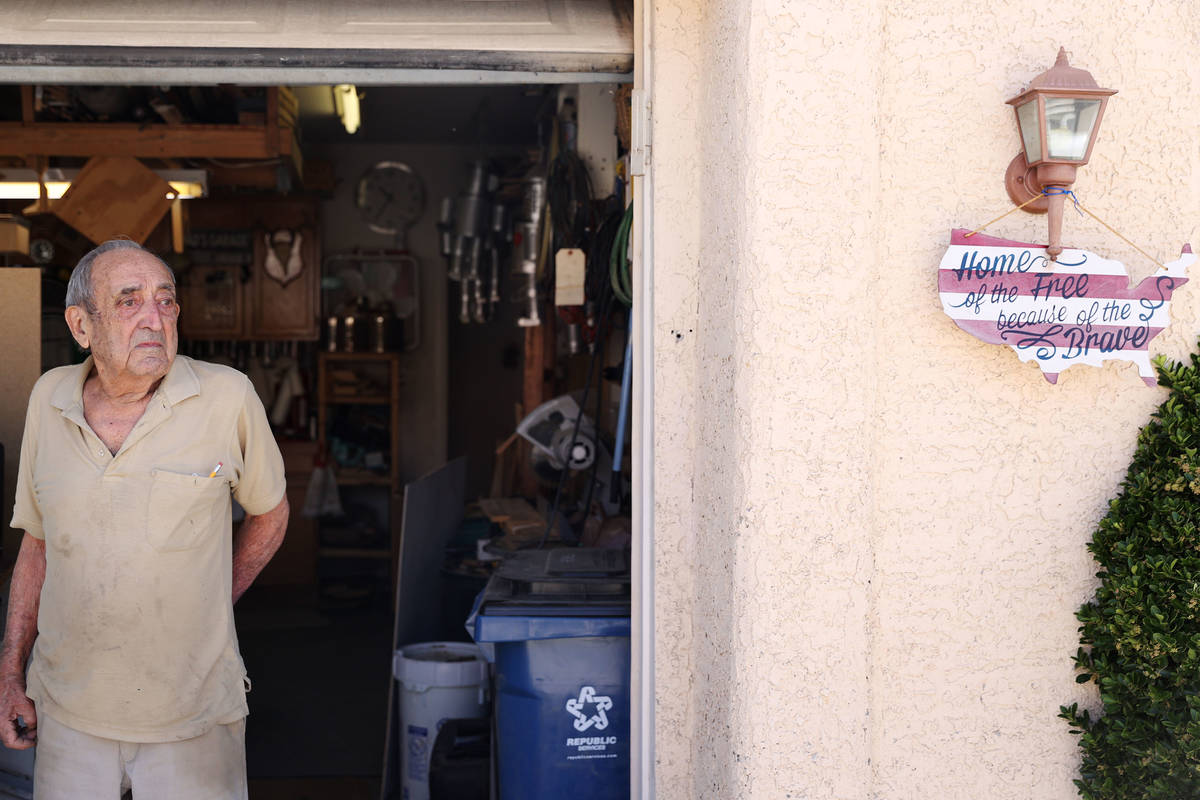An overwhelming anniversary for one of Las Vegas’ last D-Day survivors
After reading the morning newspaper these days, one of the last remaining D-Day survivors in Las Vegas takes solace in the comics.
On Friday, Onofrio “NoNo” Zicari, a 97-year-old former Army private, brewed a pot of coffee and read his favorite, “Blondie.”
“It lifts me up,” he said of his daily ritual.
The anniversary of D-Day, a major turning point in World War II, brings back a rush of painful memories each year for Zicari. Last year, he overcame those pangs and for the first time returned to the site of the June 6, 1944, landing on Omaha Beach in Normandy, France, for the 75th anniversary ceremonies.
This year, however, he acknowledges being a little overwhelmed by “the riots, D-Day and the pandemic. Everything at once.”
The state of the country in 2020 has Zicari worried we’ve “gone too far,” he said, referring to both the COVID-19 response and the protests targeting police violence against black Americans.
“You can’t learn from the future, you’ve got to learn from the history,” he said.
Delivering milk during King riots
Zicari said the current events remind him of the 1992 Rodney King riots in Los Angeles, including areas where he delivered milk in mostly black neighborhoods.
During that time, men in the neighborhood gave him a band “with some kind of ensignia” on it to wrap around his arm while he was working, Zicari said.
“I delivered my milk with no problem at all, but they were rioting all over me. They respected me, and I respected them,” he said.
“It’s only worse now, because (the protests are) countrywide … and some, they don’t know what the word freedom is. “
Zicari emphasized that the freedom he and other soldiers who stormed the beaches on D-Day fought for includes the constitutional right to protest, within reason. He also said that more interactions between people of different races could help cool the anger that erupted after the death of George Floyd at the hands of a Minneapolis police officer last week.
“I wish they’d bring back the old-fashioned bread man that went from neighbor to neighbor … and the milkman bringing the milk,” he said. “If the neighbors get together and just respect one another, I think it’ll all work out. All we need is a lot of respect, is all.”
Zicari remains in good health and keeps himself busy with wood-working projects in his garage, using his father’s cobbler machine to sand repurposed wood.
In addition to building birdhouses, he and his son, John, constructed a patriotic windmill to post next to his front lawn. On Friday morning, he was working on the tail for a smaller windmill.
Though he tries to forget the horrors of June 6, 1944, Zicari said he is grateful for his emotional return to Omaha Beach last year for the first time since he was a fresh-faced 21-year-old fighting for his life amid heavy fire from German troops and artillery.
One inspiring clip from ABC News’ “World News Tonight” showed Zicari visiting the Normandy American Cemetery and stopping at the final resting place of his friend — Pvt. Donald Simmons — who was the last one off his landing craft.
Visit to fallen comrade’s family
Among those who saw the broadcast were members of Simmons’ family in upstate New York, where Zicari was raised. That led to a second trip as he visited his friend’s closest living relatives last year in Syracuse, New York.
“It gave them closure; they didn’t how know their brother died, or how he was killed. All they knew was that he was dead, someplace buried in France,” he said.
“I told them how he was killed, where he was buried and (described) his life in the service with me. They were very thankful.”
Still, the petrifying hours when he and other members of his unit were pinned on the beach by gunfire and artillery shook him to his core. Last week, he said, he awoke in his sleep, hollering and screaming from a nightmare he says he doesn’t remember.
D-Day was the turning point for the Allies in Europe. Zicari said he has hope that the United States will make a similar comeback as it strives to heal its internal fractures and hard-hit economy.
“In the war, Germany was so strong, and Japan was so strong. We were so weak, but yet we went through it. We survived, and that’s just what we’re going to do today,” he said.
“It’s a strange world,” he said, “but we’re going to get over it. … We’re a strong country.”
Contact Briana Erickson at berickson@reviewjournal.com or 702-387-5244. Follow @ByBrianaE on Twitter.



